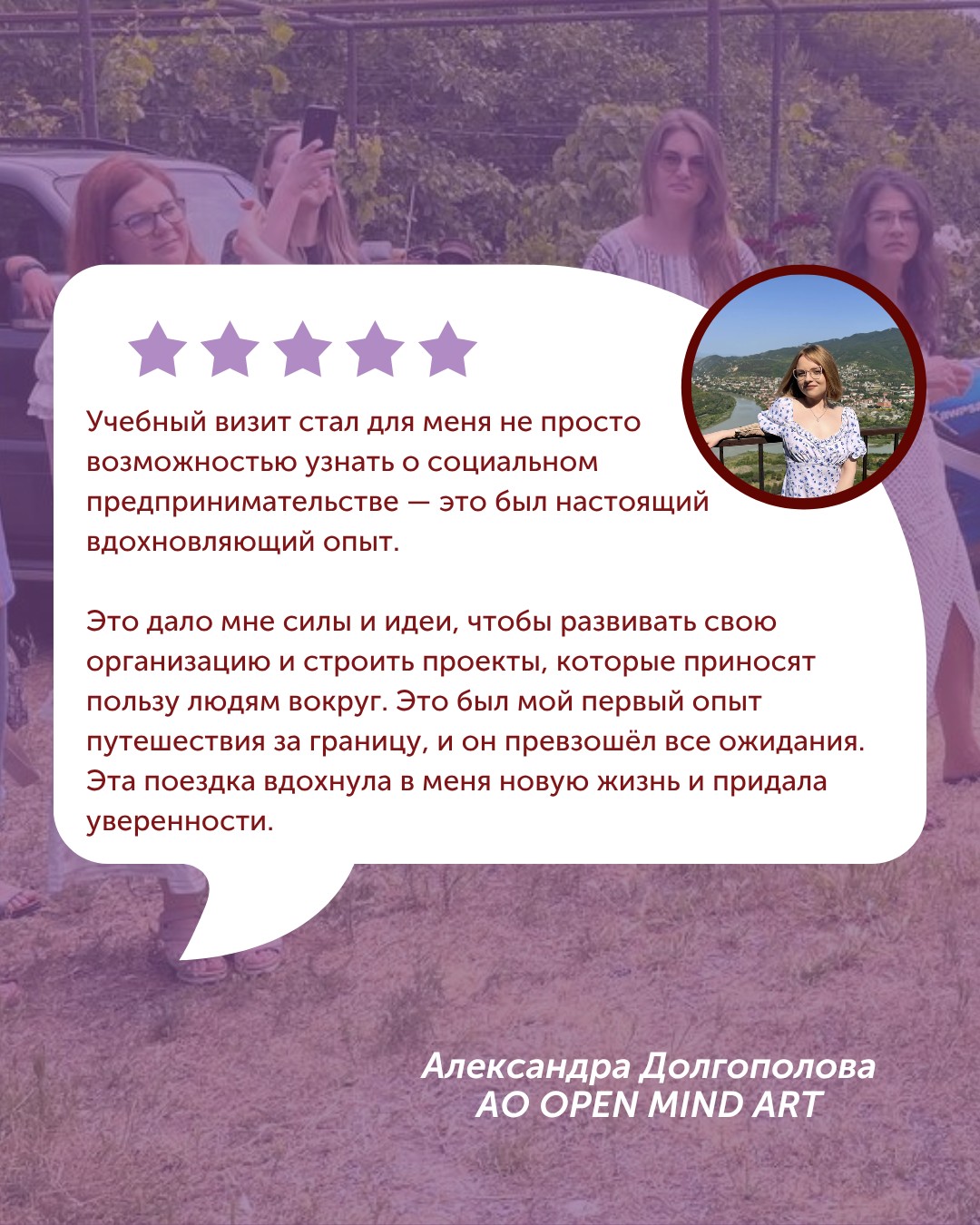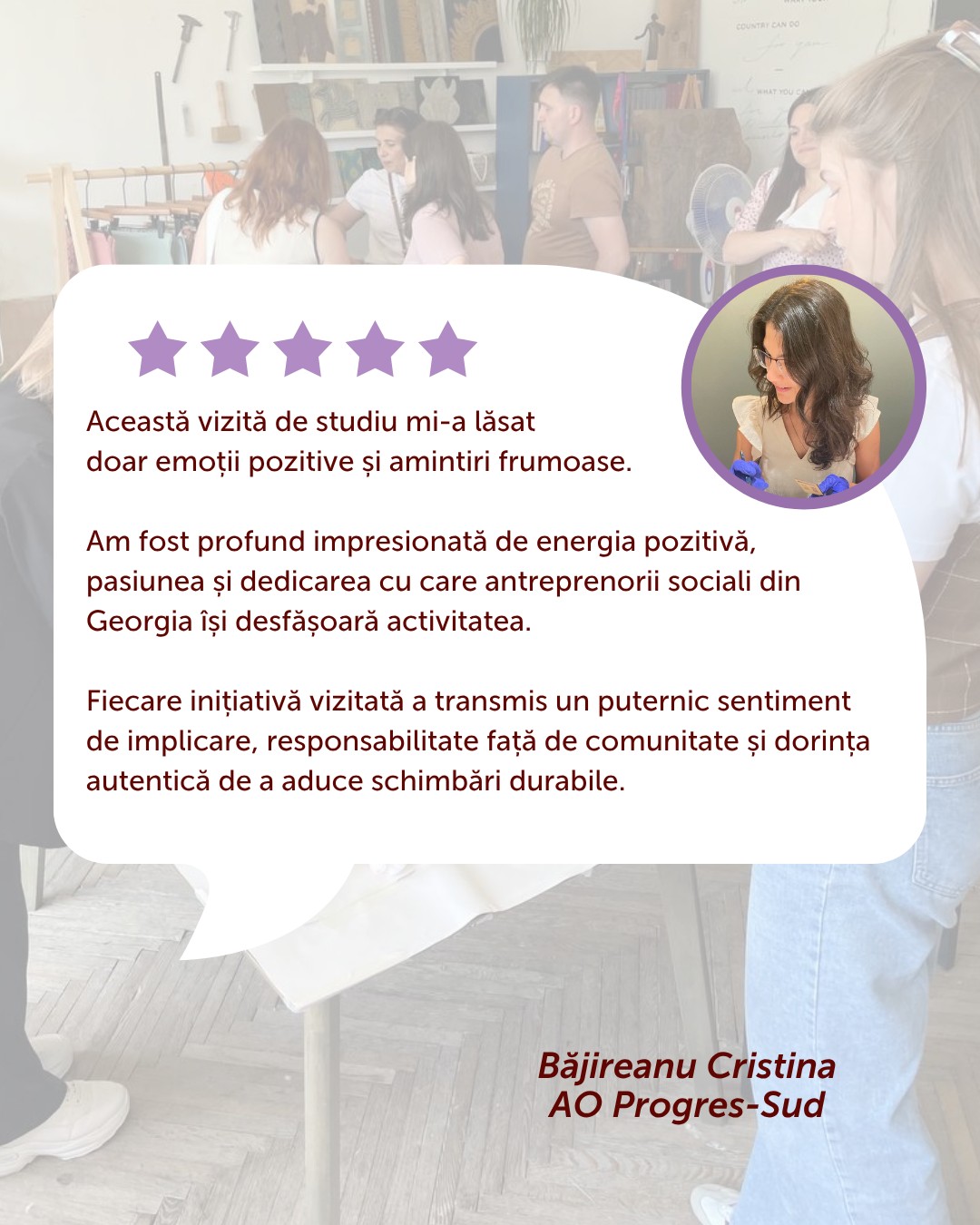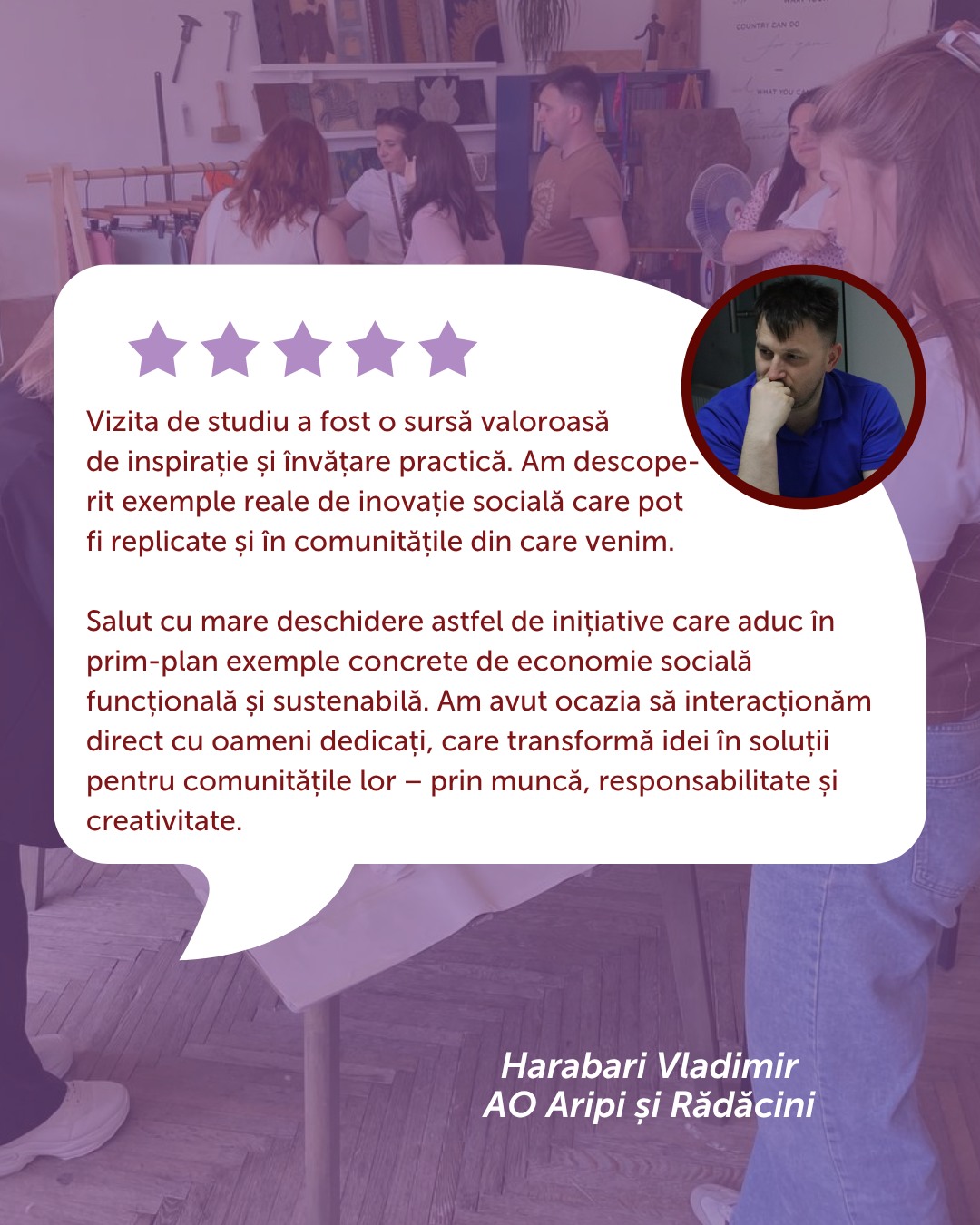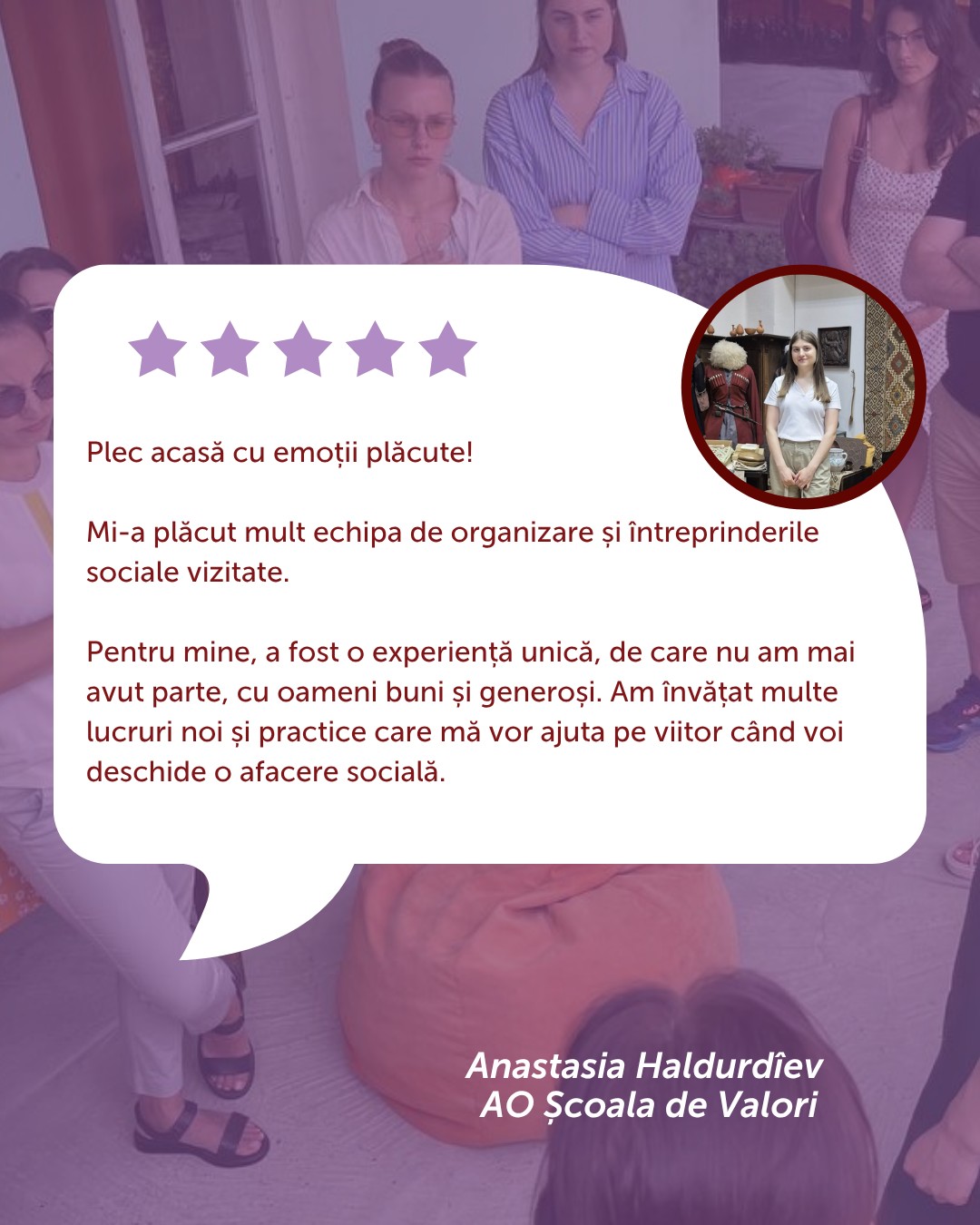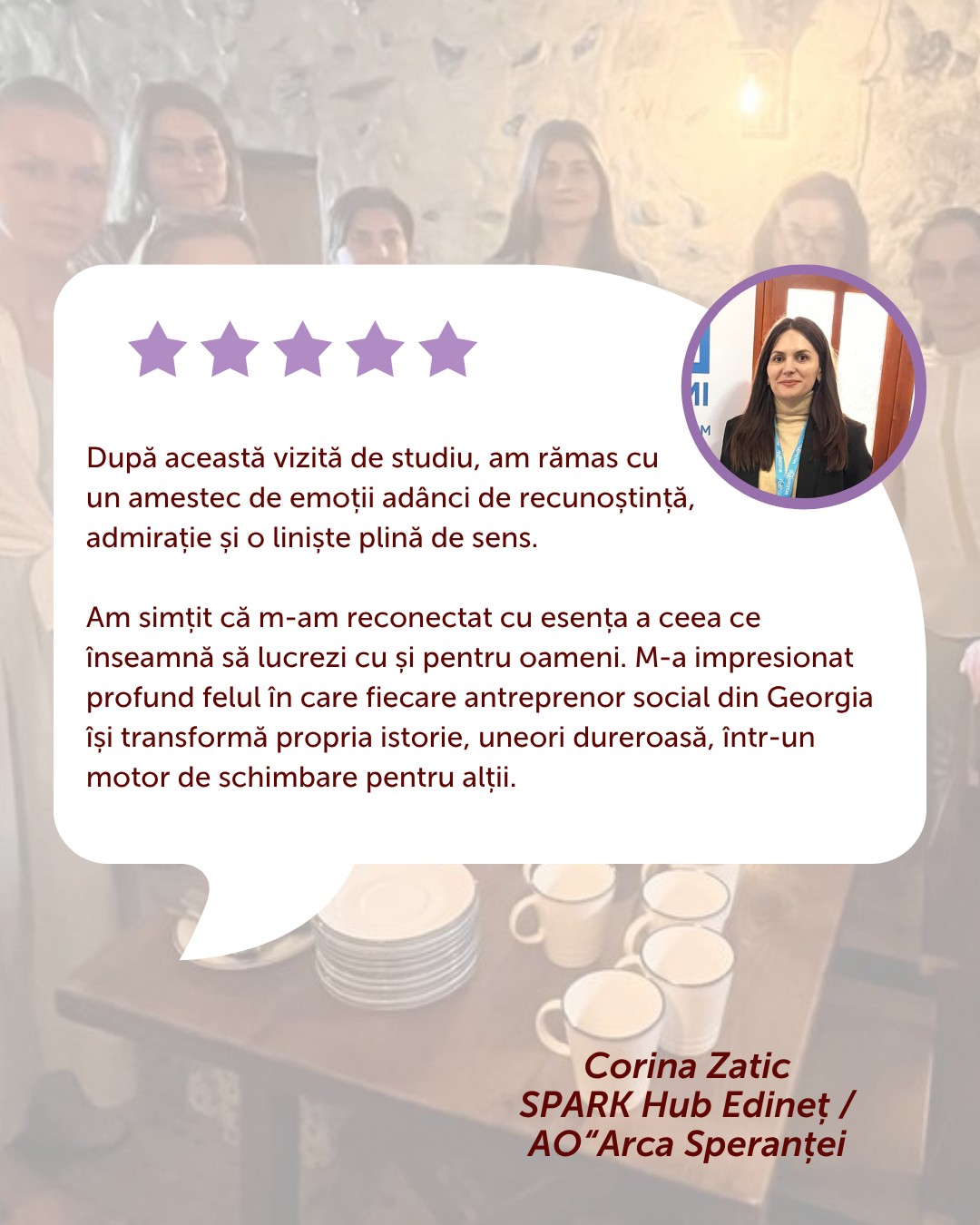Meet Up HUB EN
Meet Up HUB. Promoting innovative approaches to strengthening civil society in the Republic of Moldova
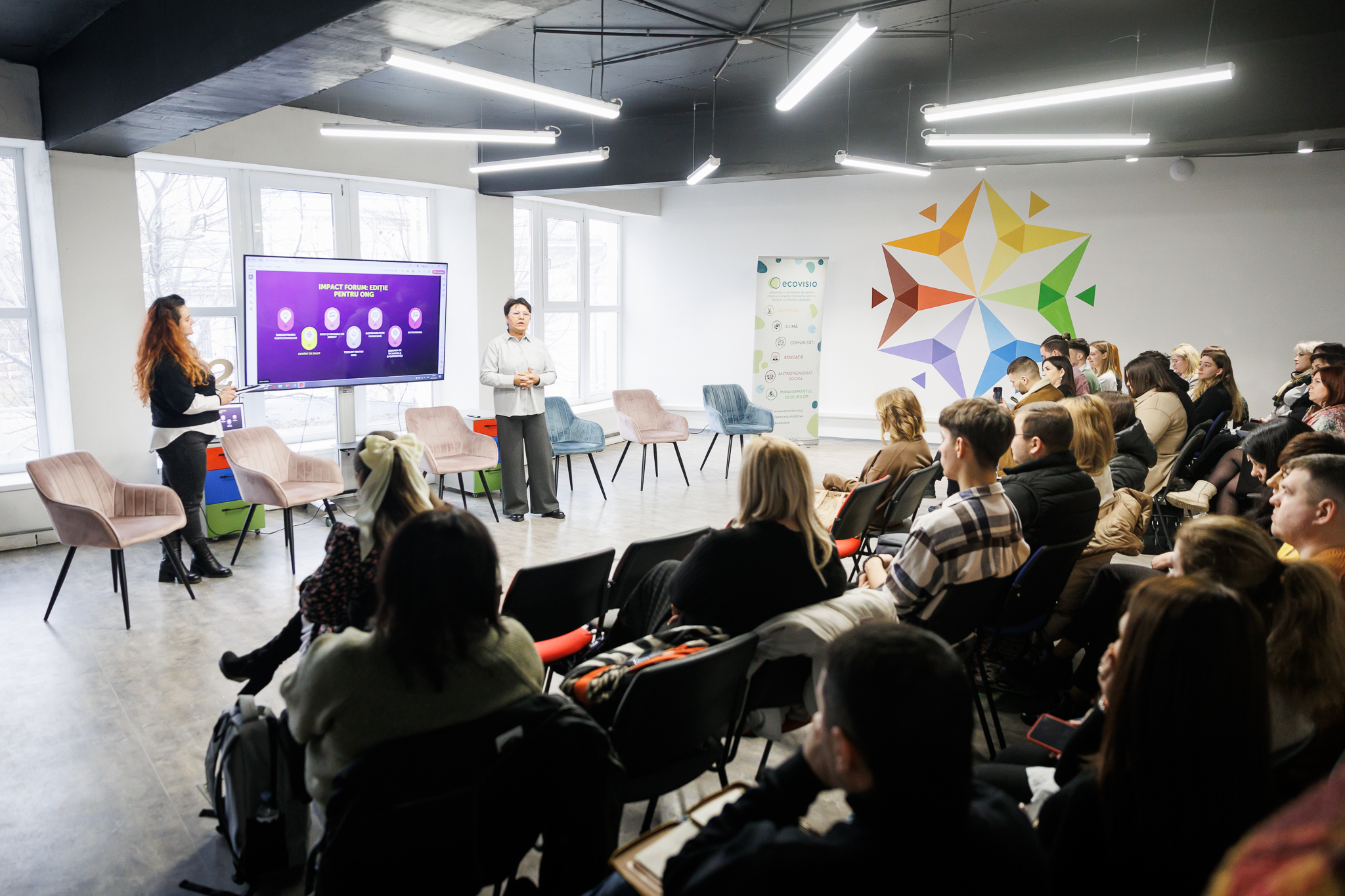
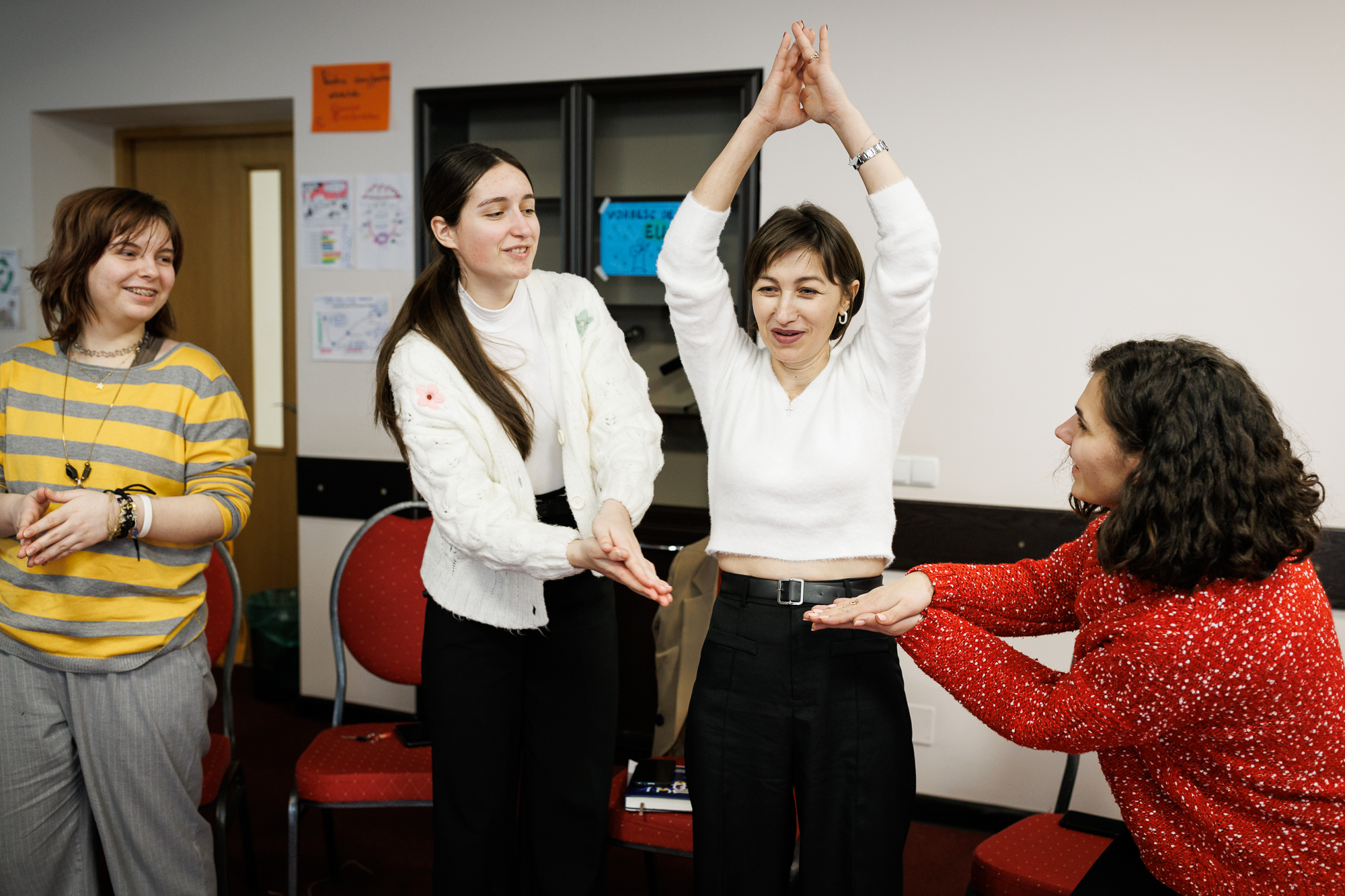
The project aimed to strengthen civil society's capacity to contribute to the EU integration process and achieve national SDG targets. We organised a Regional Impact Forum, a 2-day Hackathon and a training of trainers course, all dedicated to young civil society organisations and youth initiative groups. The project addressed the need to strengthen the capacities of these organizations to ensure the financial sustainability and positive impact of their services. Finally, we awarded micro-grants to NGOs participating in the hackathon, thus contributing to the development and implementation of sustainable social and commercial services.
Implementation period: November 2024 - June 2025
Activities carried out within the project:
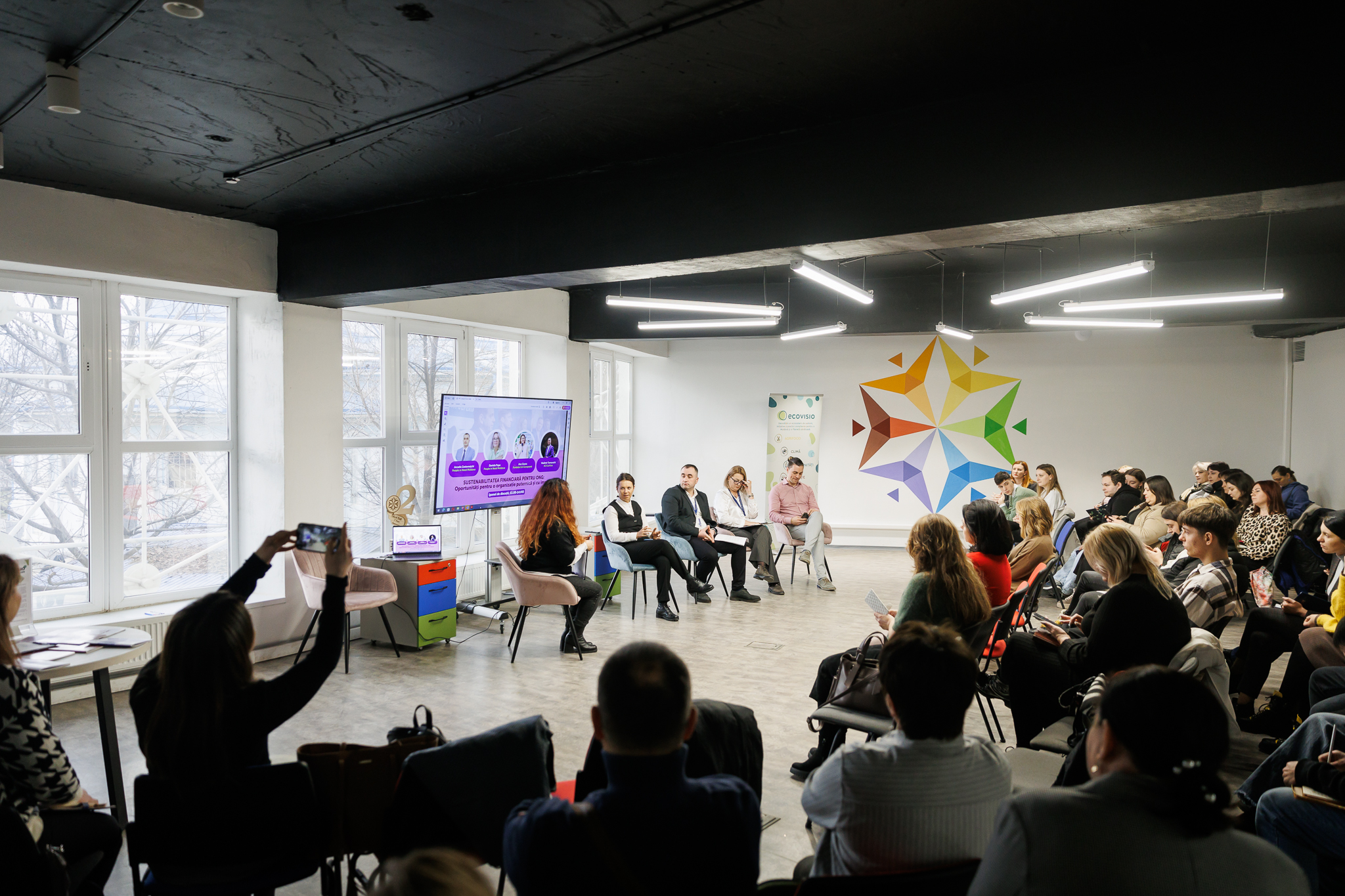
Impact Forum Bălți. Edition for NGOs
About 50 representatives of non-governmental organizations from Bălți, Edineț, Drochia, and surrounding areas attended the Impact Forum: Edition for NGOs! Participants discussed practical tools, development opportunities for organizations, and ways to increase their financial sustainability.
During the Impact Heroes session, five organizations: the Anima Training and Personal Development Center, Norda, Studem, EcoVisio, and Credem Eco talked about the impact they have on young people, women, and people with special needs, as well as on the entire community. Two of them talked about the social businesses they have initiated: TeamARRA and Credem Eco, and how the two entities—the organization and the business—collaborate with each other.
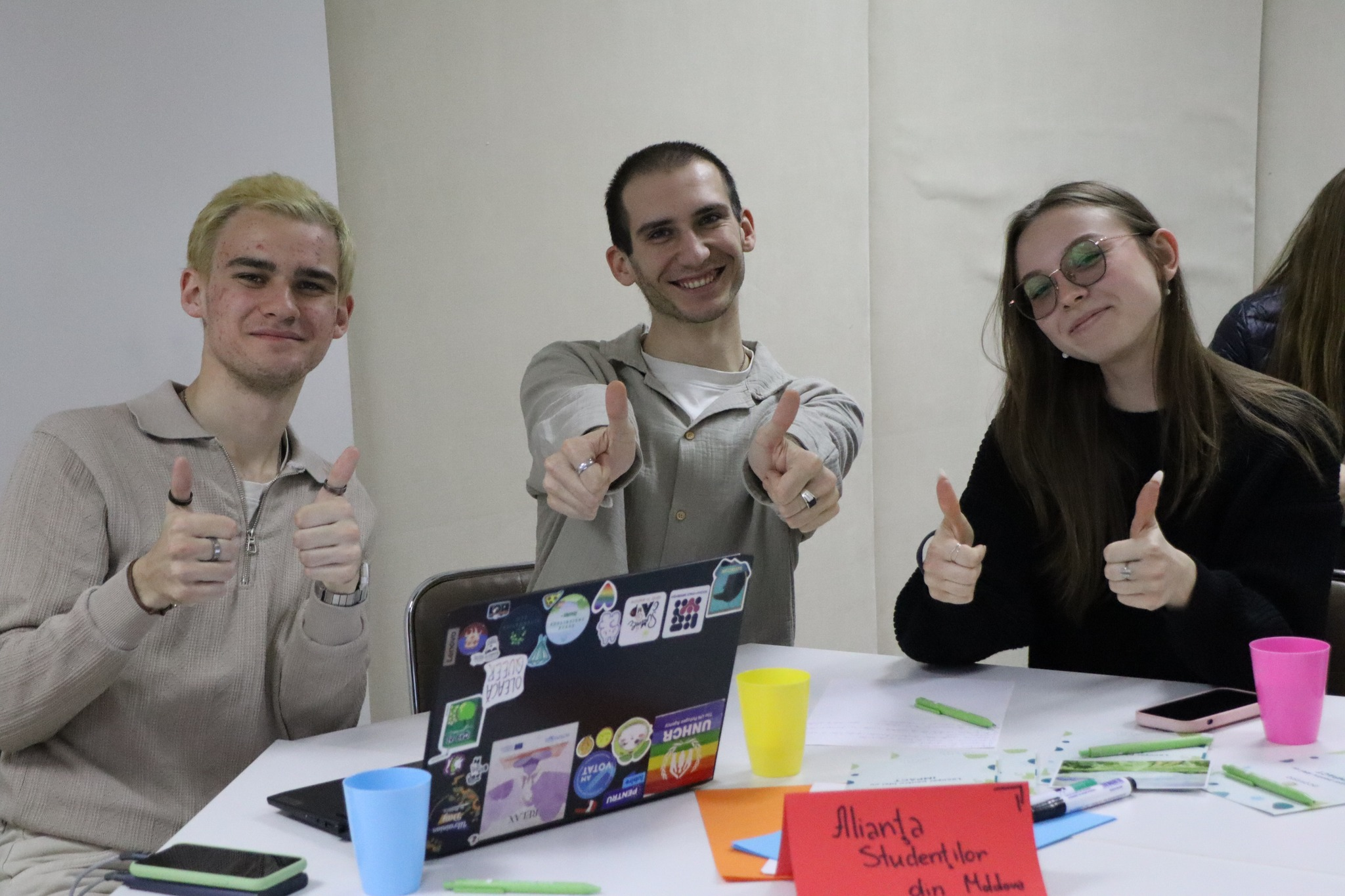
Hackathon for NGOs
NGOs have shown that they can innovate even in difficult times! During the hackathon "NGOs in turbulent times", eight teams from across the country worked intensively to find creative solutions to help them become more financially sustainable.
After 30 hours of intense work, three teams were awarded for their innovative ideas:
The grand prize of €3,000 went to the Moldovan Student Alliance for developing a web platform that connects young people with top employers in the country. An important step towards making employment opportunities more accessible to students!
Prizes of €1,500 were awarded for the development of the visual identity of the projects to:
- National Youth Platform for Active Participation – they proposed digitizing volunteer involvement by creating a national database. The team impressed the jury not only with their idea, but also with their card reader prototype!
- AO Nord Press Club – aims to create a package of commercial media services to support its activities. Developing a strong brand is becoming a necessity for regional media in these uncertain times.
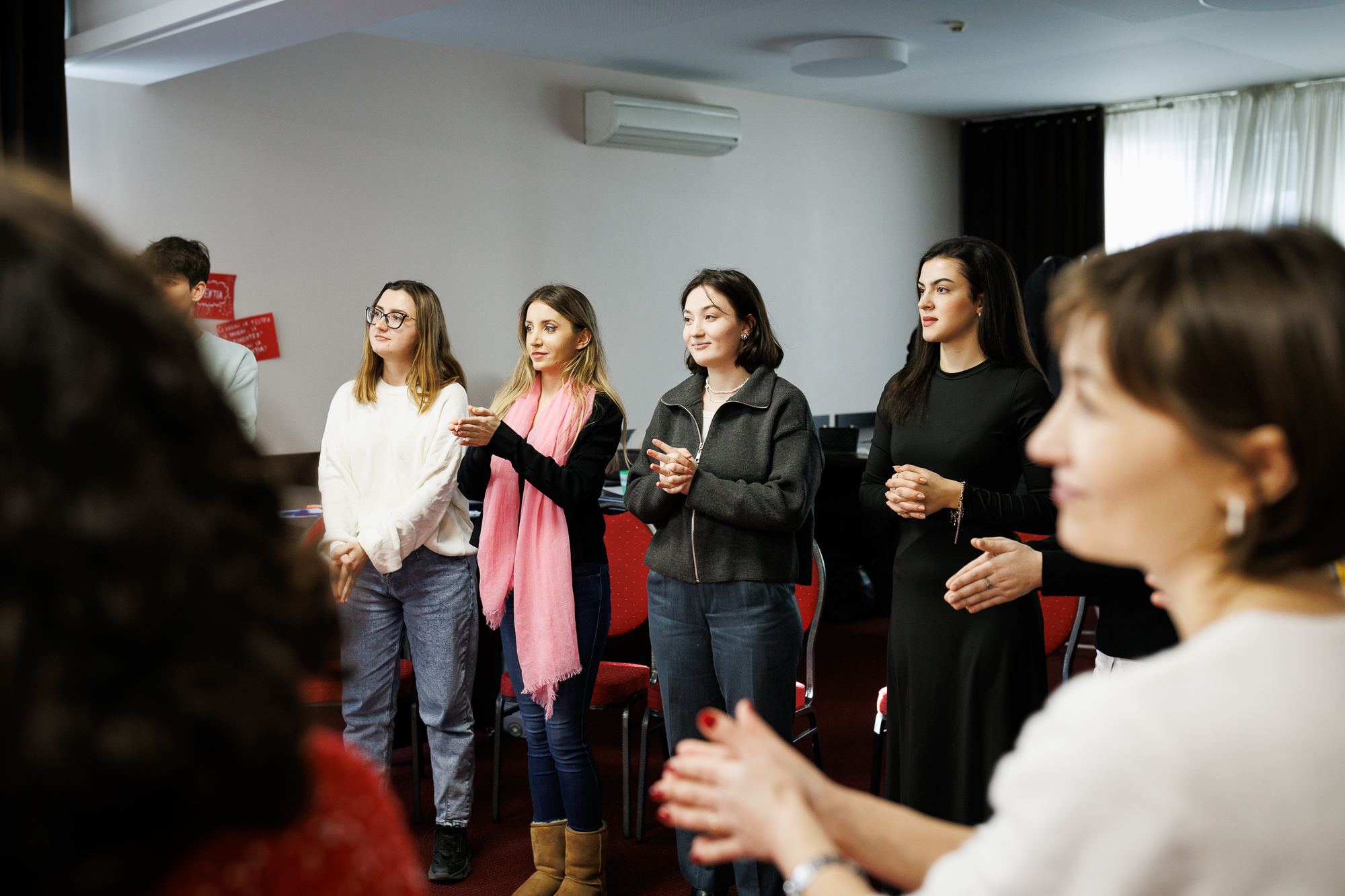
"Training of Trainers" course in non-formal education
In February, we launched the introductory course in non-formal education in youth work. Together with the 18 participants, we explored what non-formal education is, what it involves, and its basic theories and concepts.
The participants were divided into teams and went through several practical exercises, such as: "The group of volunteers you are working with has to complete a project, but they are unable to work together effectively. Plan and facilitate an activity that will help them become a united team" or "You have a concept or theory that you want to convey to the group in a participatory way. How do you do that?"
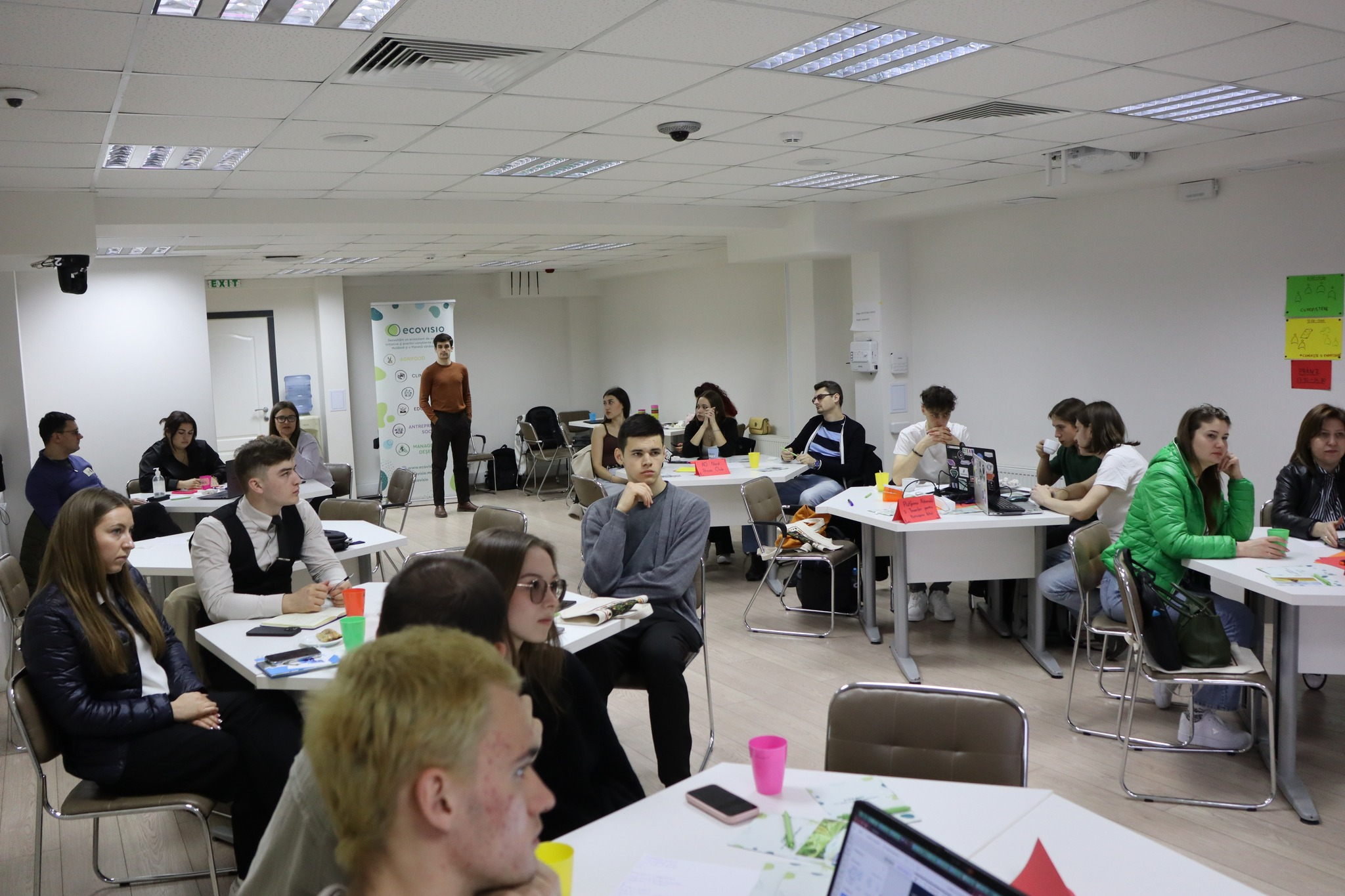
Mini-grants
Support was provided to organizations in developing their own services to increase the financial independence of youth NGOs. Fifty-one organizations applied, including those working with both youth groups and refugees from Ukraine. In the end, five grants of €3,000 each were awarded to the following organizations:
AO Asociația de Băștinași Răzeșii. Junior - for the idea of developing courier services within the local social laundry in Răzeși
AO Civic HUB - proposed to create marketing and visibility services for youth institutions and organizations in Cimișlia
AO EDUCAT - initiated its first paid courses for children in robotics and IT
AO Laolaltă - created their own clothing collection, "În Torbă," which promotes responsible consumption and values such as inclusion, gender equality, sustainability, etc.
AO Sigmoid - developed the Sigmoid Learning Platform for young people who want a career in IT.
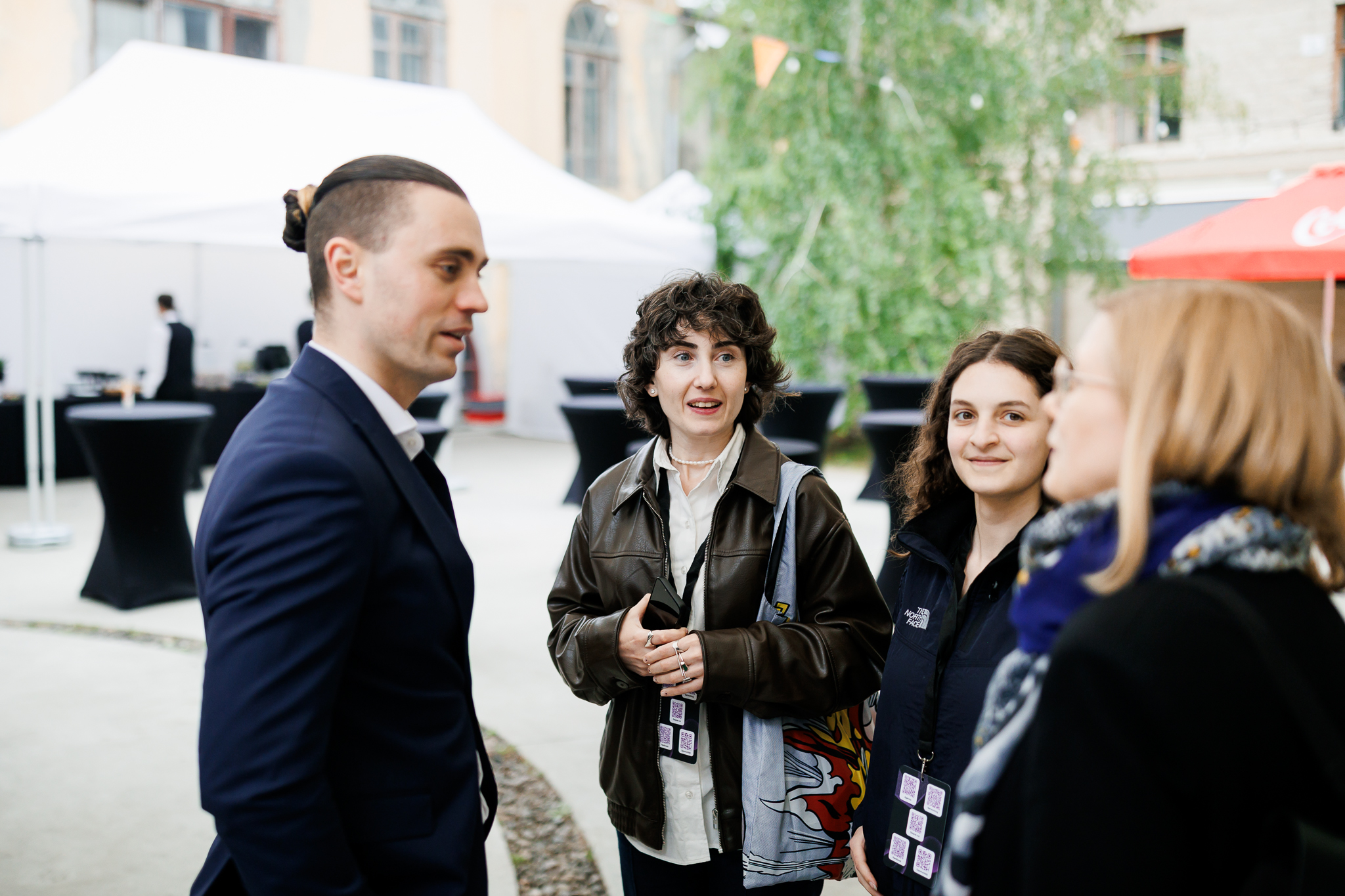
Impact Days 2025 Conference
Impact Days is a European business summit dedicated to the social and green economy. The event format included extensive panels held simultaneously. This gave all attendees the opportunity to choose the discussions they wanted to attend.
Entrepreneurs, managers, experts, and specialists from various fields participated in kaleidoscopic sessions on different topics, such as: inspiring stories of local impact businesses, legislative aspects related to the functioning of social enterprises, opportunities for import and export support, new ideas for HR managers in the context of Artificial Intelligence, and the inclusion of disadvantaged people in the workforce.
The list of speakers was generous, with over 30 experts from various fields and from abroad: Sweden, Germany, Armenia, and Ukraine.
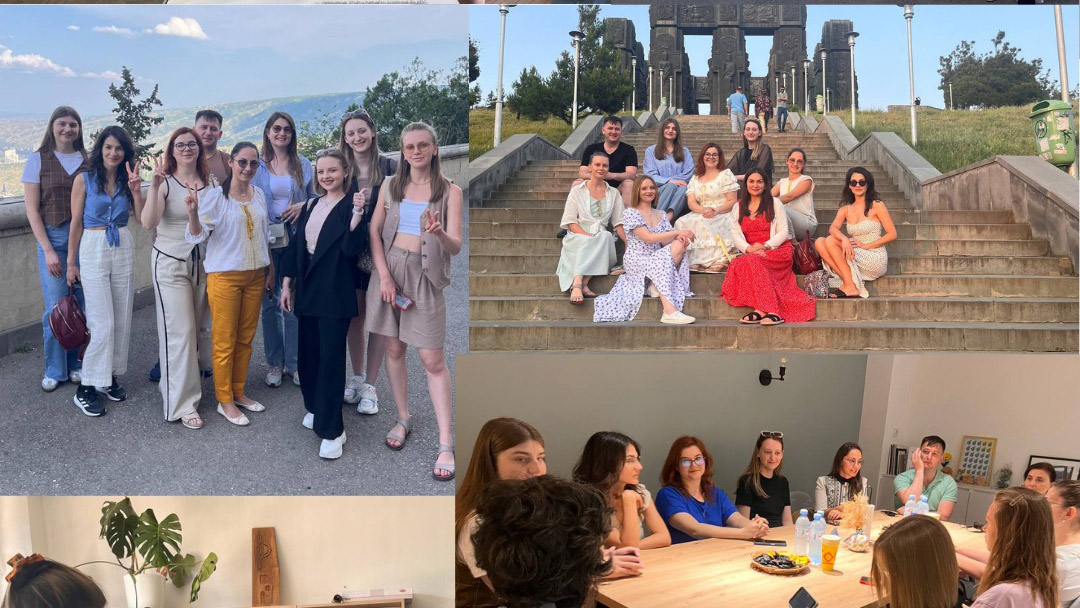
Study visit to Georgia
Ten youth organizations or organizations working with young people in Moldova traveled to Georgia in June to discover social businesses created by Georgian NGOs! Each social business welcomed us with open arms and shared behind-the-scenes stories about how the idea came about, what obstacles they faced, and who supported them along the way. Moreover, they shared with us the results they have achieved over the years and how they directly contribute to solving problems in the community.
Below are some impressions of the participants in the study visit:
In addition, three webinars on financial sustainability for NGOs were organized, with approximately 70 participants in each webinar.
Contacts:
- Marina Cebanu, project coordinator: marina.cebanu@ecovisio.org
The project "Meet Up HUB. Promoting innovative approaches to strengthening civil society in the Republic of Moldova" was implemented by AO EcoVisio with financial support from the EVZ Foundation.
EU4Youth articol Armenia
Suren Mkhitaryan, the entrepreneur who found the perfect balance between profit and social impact
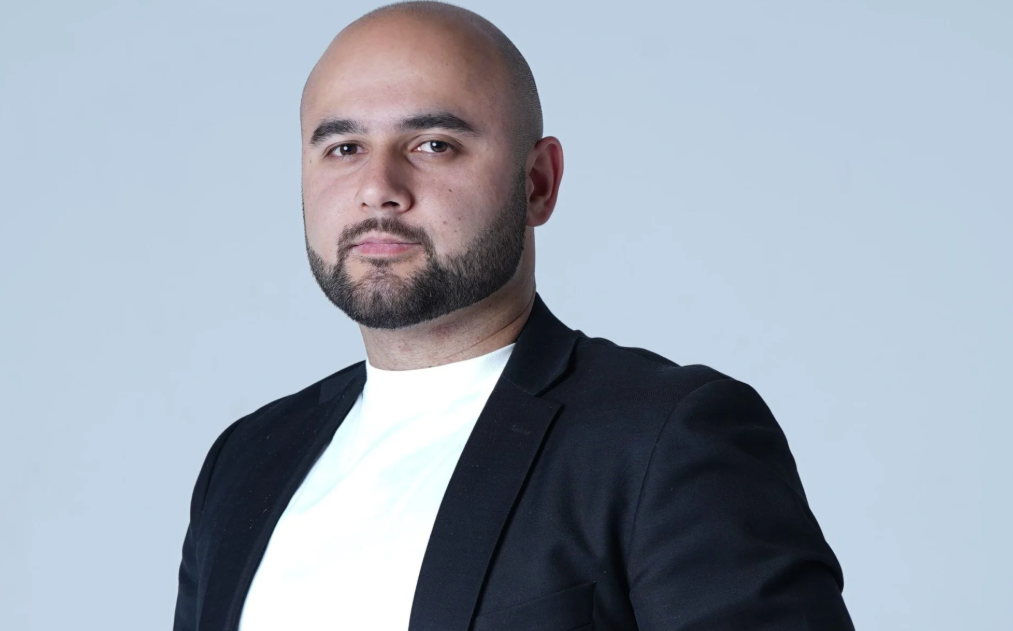
Suren Mkhitaryan is not a typical entrepreneur. As the co-founder and current president of the CODE Social Entrepreneurship HUB (CODE-SE HUB) in Armenia, he’s built his career around an ambitious goal: proving that business can be both profitable and socially impactful. His journey in social entrepreneurship began in 2015 when he helped to launch CODE-SE as a major pilot project dedicated to promoting social entrepreneurship in Armenia (co-funded by the European Union).
Recently, Suren joined 24 young changemakers from Armenia, Georgia, Moldova, and Ukraine for the ‘Spring school for young trainers and entrepreneurs’, an intensive four-day exchange on digital transformation and the green economy.
Organised by EcoVisio at EcoVillage Moldova under the EU4Youth programme, the Spring School focused on practical and sustainable solutions for local communities.
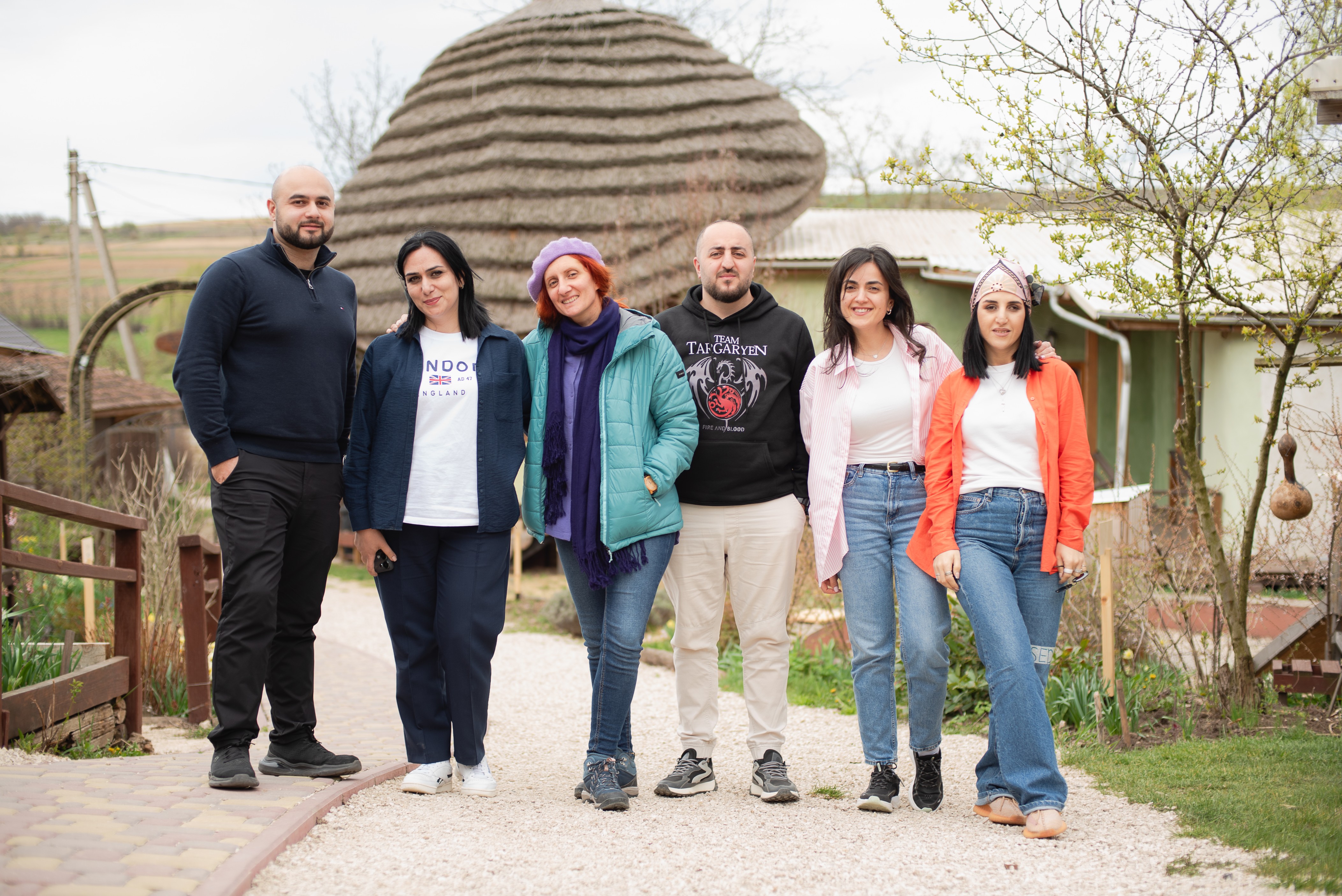
Motivation is key to creating an impact
Suren’s motivation stems from a deep personal transformation – from being a struggling student to one of the top pupils in his university through self-development and continuous learning. After exploring various fields of study such as the public sector, non-profit sector, international organisations, and business, he found that social entrepreneurship was the perfect balance between making a profit and having a social impact. His driving force is helping people reach their potential, not through charity, but by empowering them to help themselves through sustainable solutions such as training and online courses benefiting over 5,000 people so far. “Besides this,” he adds, “we directly supported over 30 social enterprises, but indirectly there are many more, because besides founding and supporting them, we are offering mentorship, consultancy, having an impact on the ecosystem in general. We were one of the pioneers, and we’re still one of the most active in the field.”
The vision for a better future
The main strategy they started from was to support small, community-based social enterprises that solve issues in the community through social entrepreneurship. Looking ahead, the CODE-SE HUB is looking merge start-up innovation with social enterprise values – scalable, profitable, and capable of driving systemic change. This approach emphasises sustainability, innovation, and impact on a larger scale, beyond just local solutions.
‘’Our vision for the future is to develop a new model for social entrepreneurship and, somehow, not to change it, but rather to add another model. To connect the model of start-ups to social enterprises, because start-ups are more innovative, they are scalable and, if they succeed, they are highly profitable.” At the same time, he adds, “we want to continue what we are doing now, going to the schools, the colleges, universities, to young people, to community members.”
Personal journey and insights on inspiring young people
His journey was not linear. Suren moved across various fields to discover his true calling. What set him apart was not just talent, but a hunger to learn and grow. From volunteering to CEO in one year, his story reflects the power of curiosity, mentorship, and adaptability. Over time, he evolved from an entrepreneur to a system thinker and ecosystem builder, creating a network of NGOs, businesses, incubators, and funding partners that work together towards shared goals.
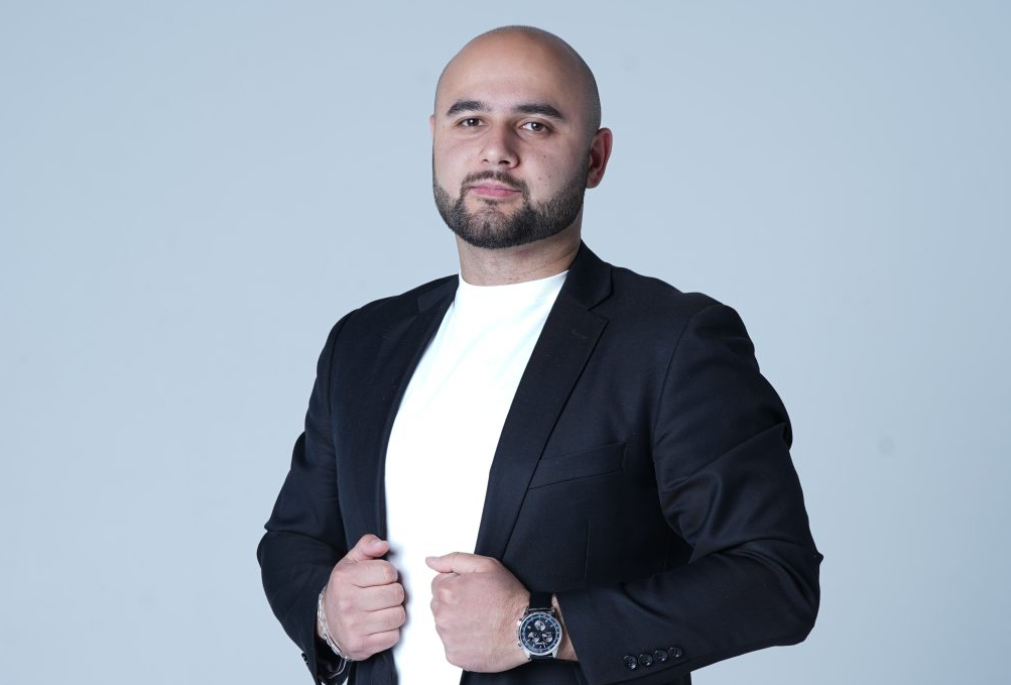
“For me, it has always been the concept of what I wanted to do: to earn money by supporting others. You can earn a lot of money and feel good about this, because you support a lot of people. So, this was a major concept that I had when I was a child, and social entrepreneurship is the model supporting this idea,” Suren said.
His main message to young people is to see their own potential and try to become the best version of themselves – not by comparing themselves with others, but by overcoming their reticence, their fears, and the challenges they face. This is a meaningful and powerful way both to make an impact and thrive financially.
The Spring School in Moldova was supported through the ‘EU4Youth Phase III: Youth Employment and Entrepreneurship programme’, under the ChildFund project ‘Promoting youth social entrepreneurship and practical career management skills in Ukraine, Moldova, Georgia and Armenia through the innovative approach of Student Social Companies (SSCs)’.
EU4Youth Phase III Youth Employment and Entrepreneurship’ is funded by the European Union and the Ministry of Foreign Affairs of Lithuania, and implemented by the Central Project Management Agency (CPVA) in the Eastern Partnership countries, Armenia, Azerbaijan, Belarus, Georgia, Moldova, and Ukraine. The programme will run until mid-2025, and aims to provide technical assistance to governmental and non-governmental organisations to tackle youth unemployment and improve employability.
EU4Youth articol Ucraina
A regional mission to drive social entrepreneurship: the story of Ksenia Kosukha
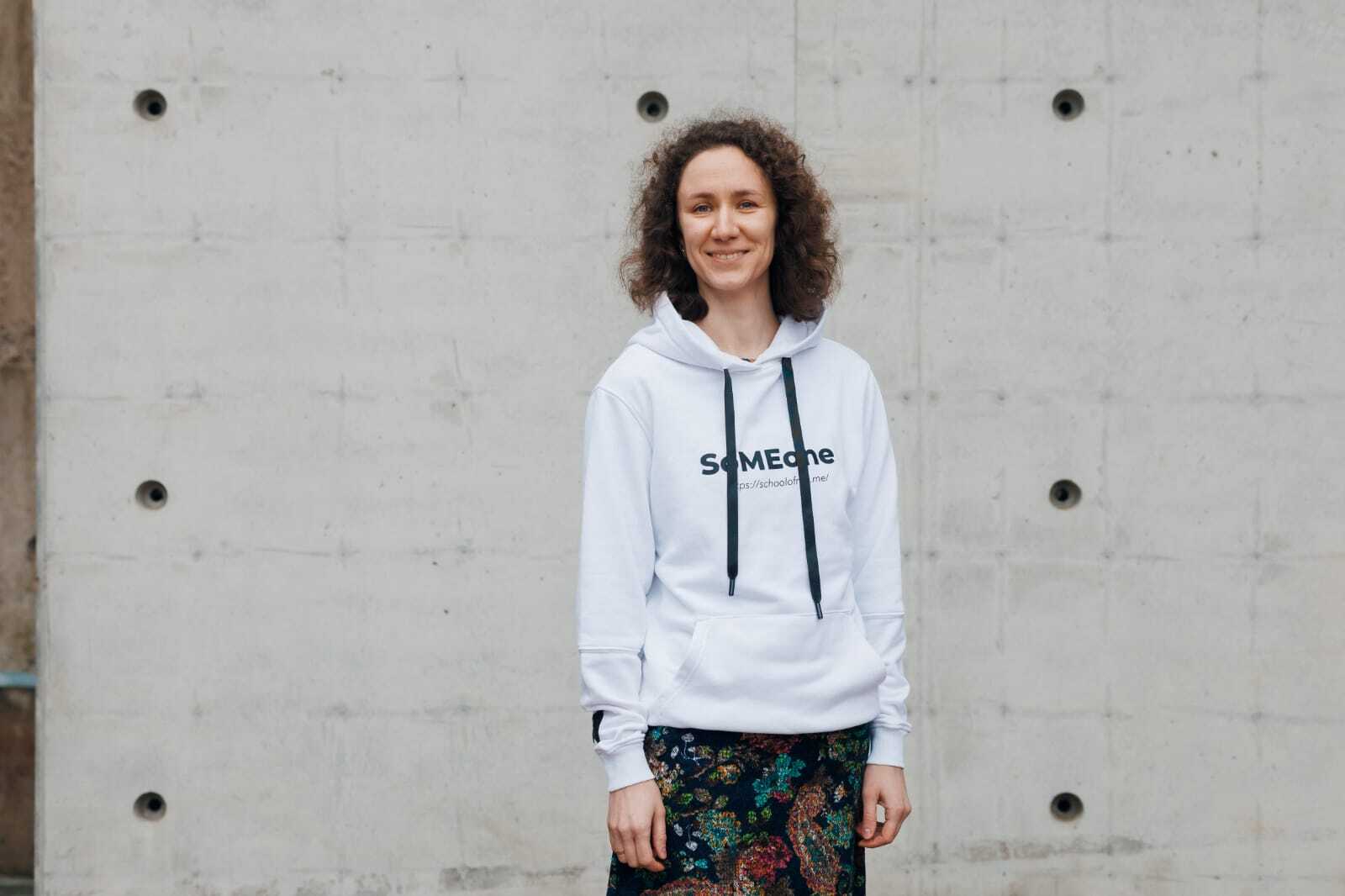
Ksenia Kosukha, a young professional from Kyiv, started her journey as an activist and project coordinator at the School of Mindful Entrepreneurship (School of ME), guiding young people towards employment and promoting the idea of an economy with social impact. Passionate about social entrepreneurship since her university days, Ksenia recently came to Moldova to participate in the ‘Spring School for Young Trainers and Entrepreneurs’, an intensive four-day learning experience that brought together 25 young changemakers from Moldova, Ukraine, Georgia, and Armenia.
Organised by EcoVisio at EcoVillage Moldova and funded by the ‘EU4Youth Programme Phase III: Youth Employment and Entrepreneurship’, the Spring School became a turning point for Ksenia, helping her to discover how social entrepreneurship can create real and sustainable community solutions focused on digital transition and the green economy.
From activism to a personal mission
“When I first heard about social entrepreneurship, I was just an activist. Until then, I didn’t know I could combine social involvement with sustainable community solutions, and this discovery deeply inspired me and motivated me to participate,” said Ksenia.
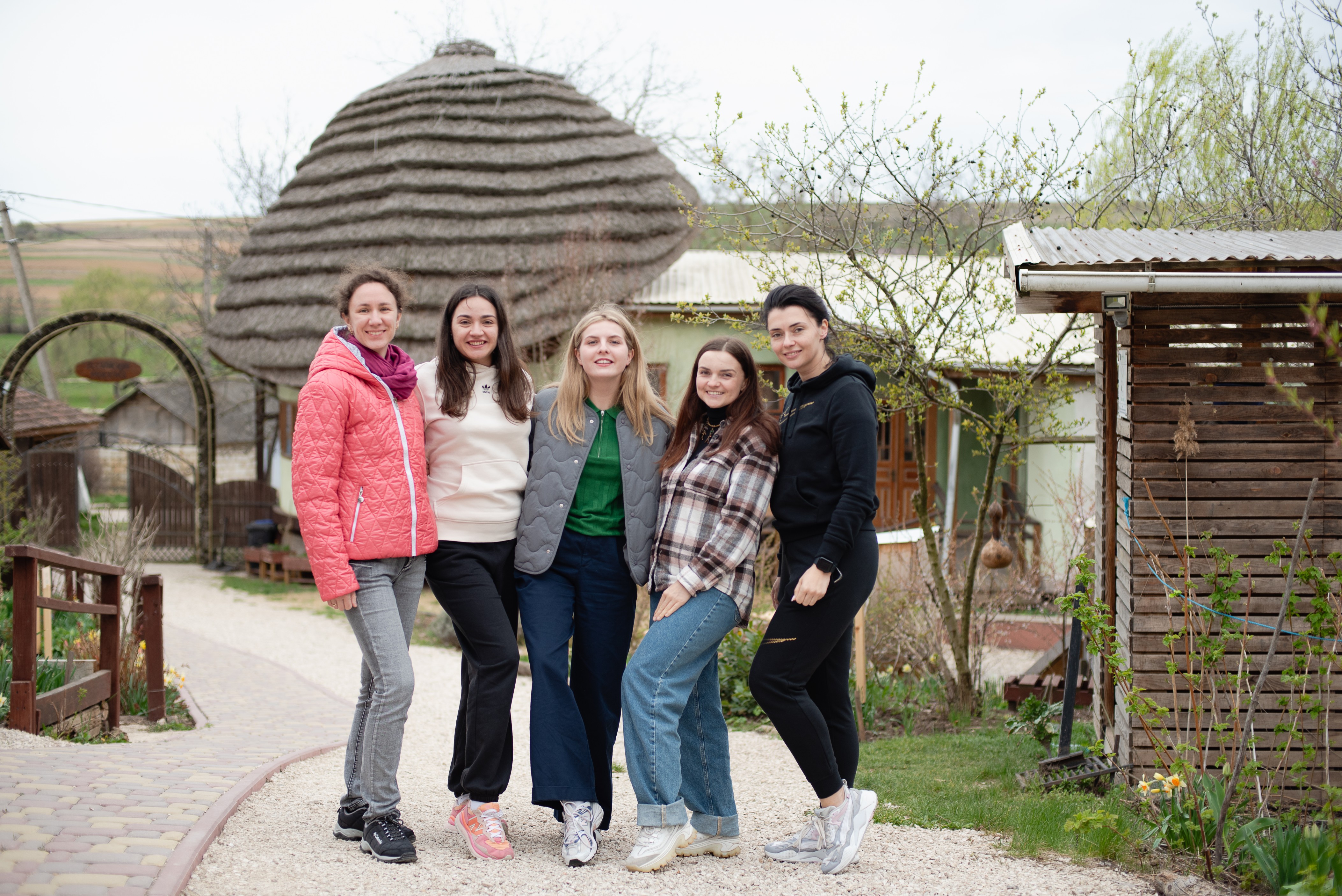
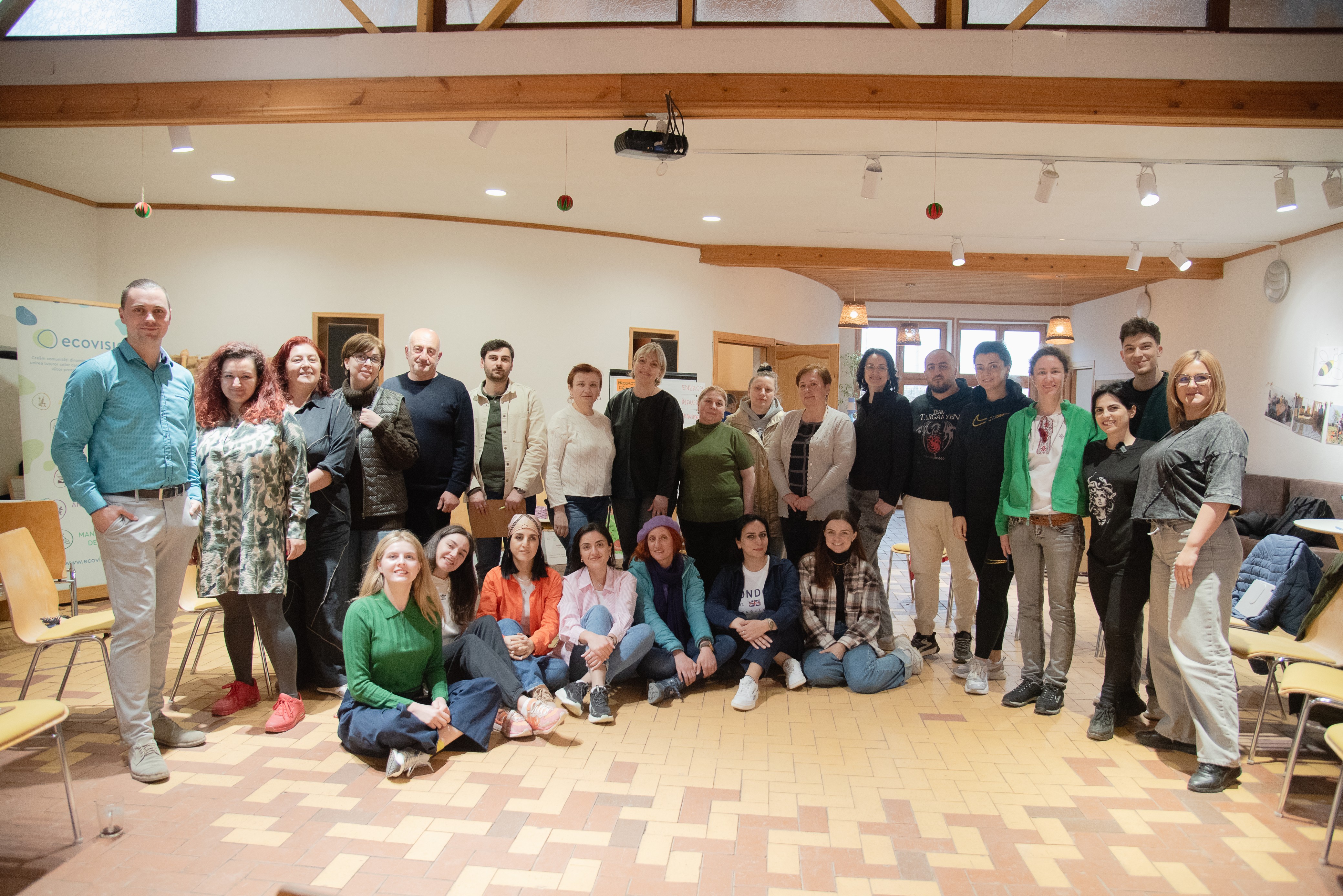
Together with her team from the School of ME, Ksenia supports Ukrainian students in securing their first jobs and collaborates with social enterprises struggling with workforce shortages. Driven by her wish for a more sustainable world for her family and future generations, she believes “it is important that what we advocate is also reflected in our way of life”.
“Ninety-nine per cent of those present here want a greener world for themselves and their children. If we help each other and encourage more people to get involved, I am sure the world will become a better place. I will do everything I can to contribute to this!”
Four days of inspiration and discovery
For four days, Ksenia joined young people from Armenia, Georgia, Ukraine, and the districts of Moldova, exploring sustainable community solutions through practical learning and experience sharing. Participants learned to use digital technologies to support their training and entrepreneurial activities, all within an inspirational, nature-friendly environment.
“Starting from energising exercises combined with AI tools and spaces for experience sharing, we aim to integrate sustainable business models and ecological practices specific to the green economy into our activities,” Ksenia explained. “We explored novel and sometimes unfamiliar experiments, but it was precisely this curiosity to understand how things work that motivated me. We work with children, youth, and adults and discuss these practices, and I wanted to have real experiences, not just theoretical knowledge, to better understand how these solutions can be implemented in our field.”
Building a regional network of social entrepreneurs
The exchange of good practices from workshops and interactions with participants from four countries provided Ksenia with a solid foundation for developing regional partnerships. She aims to extend educational programmes in this field to Ukraine as well.
“The people here are wonderful! I’m passionate about learning, and their stories inspire me deeply, encouraging me to learn more about Moldova, its citizens, and their ideas for a balanced and green ecosystem. I hope we can cooperate even more in the future and promote the same values in Ukraine and Moldova: social responsibility, sustainable innovation, and inclusive education.”
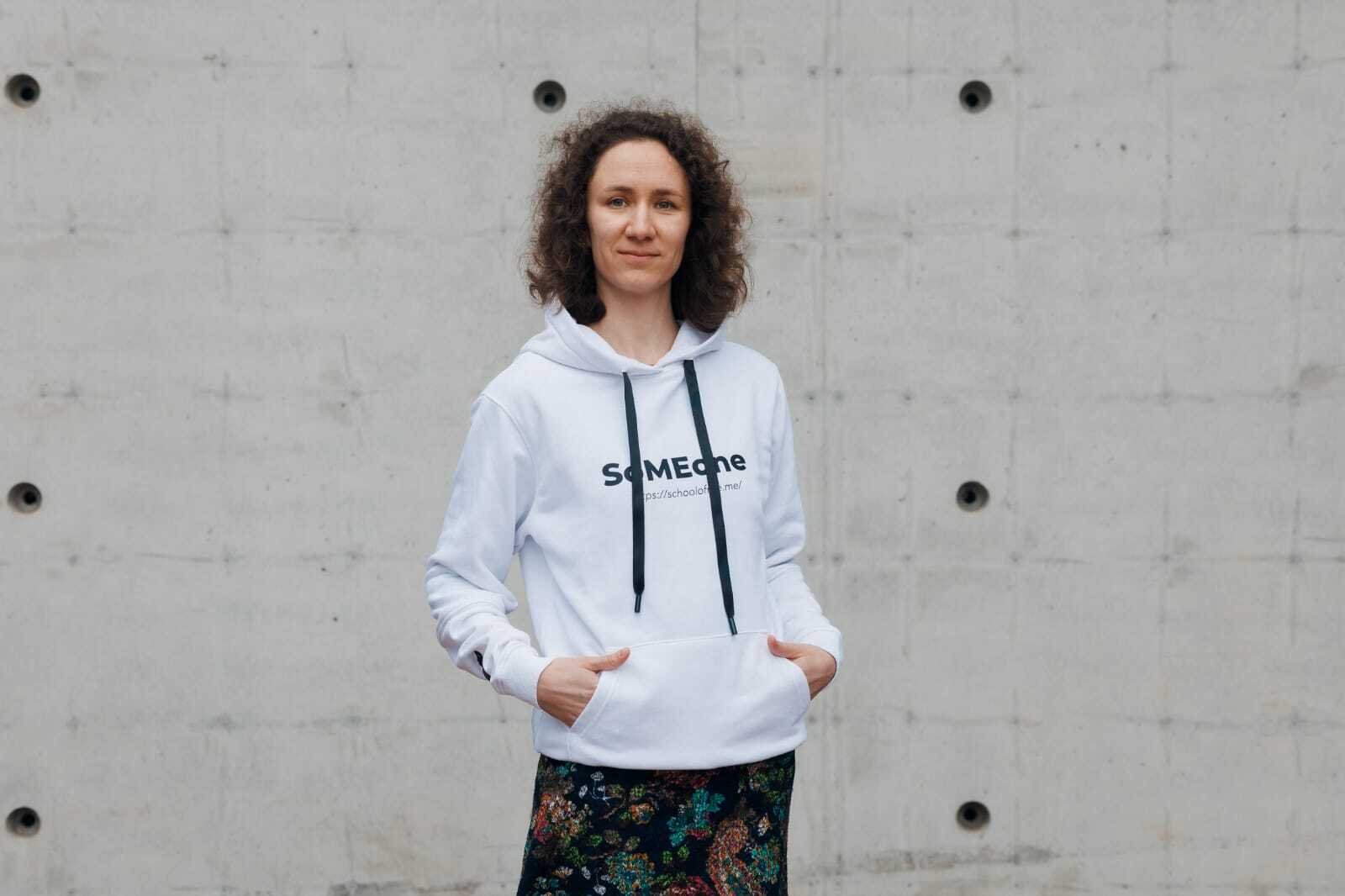
EU4Youth Programme – the path to change
Ksenia believes that the outcomes of this experience will be expressed in future joint events and the expansion of the project to other countries. In her view, the knowledge and experience she has gained present an opportunity to contribute to social change, eventually reaching a global scale.
“New experiences, valuable insights gained through different perspectives, interaction with other cultures – all these lead to change that can be reflected in society and, subsequently, globally. It’s a form of empowerment and inspiration where people can compare alternatives and choose the right path.”
A simple message for those still hesitating
Ksenia has straightforward advice for young people considering social entrepreneurship but unsure if it is right for them: “They should try, and then decide if it suits them or not. It might change their lives – as it did mine.”
The EU4Youth Phase III Youth Employment and Entrepreneurship programme, funded by the European Union and the Ministry of Foreign Affairs of Lithuania, is implemented by the Central Project Management Agency (CPVA) in the Eastern Partnership countries, Armenia, Azerbaijan, Belarus, Georgia, Moldova, and Ukraine. The programme will run until mid-2025 and aims to provide technical assistance to governmental and non-governmental organisations to tackle youth unemployment and improve employability.
EU4Youth articol Georgia
The power of one: Nana Tsotsonava’s mission to make green thinking go regional
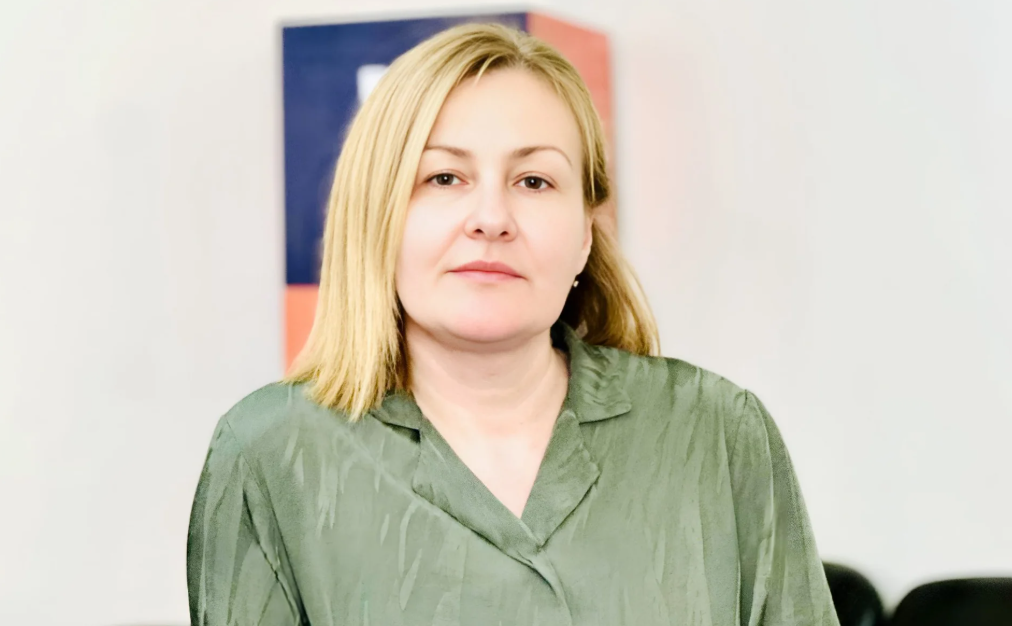
For Nana Tsotsonava, a project manager from Kutaisi, Georgia, real change doesn’t always begin with grand gestures. Sometimes, it starts with a conversation, an idea, or a gathering of minds in the right place at the right time. She is currently leading the EU4Youth project ‘Fostering Youth Social Entrepreneurship and Practical Career Management Skills’.
Nana recently attended the Spring School, an intensive four-day learning experience that brought together 25 young changemakers from Moldova, Ukraine, Georgia, and Armenia. The event was organised by EcoVisio at EcoVillage Moldova and funded by the European Union’s EU4Youth programme.
For Nana, this was more than just a workshop – the participants explored real sustainable solutions for communities, for digital transition and green economy.
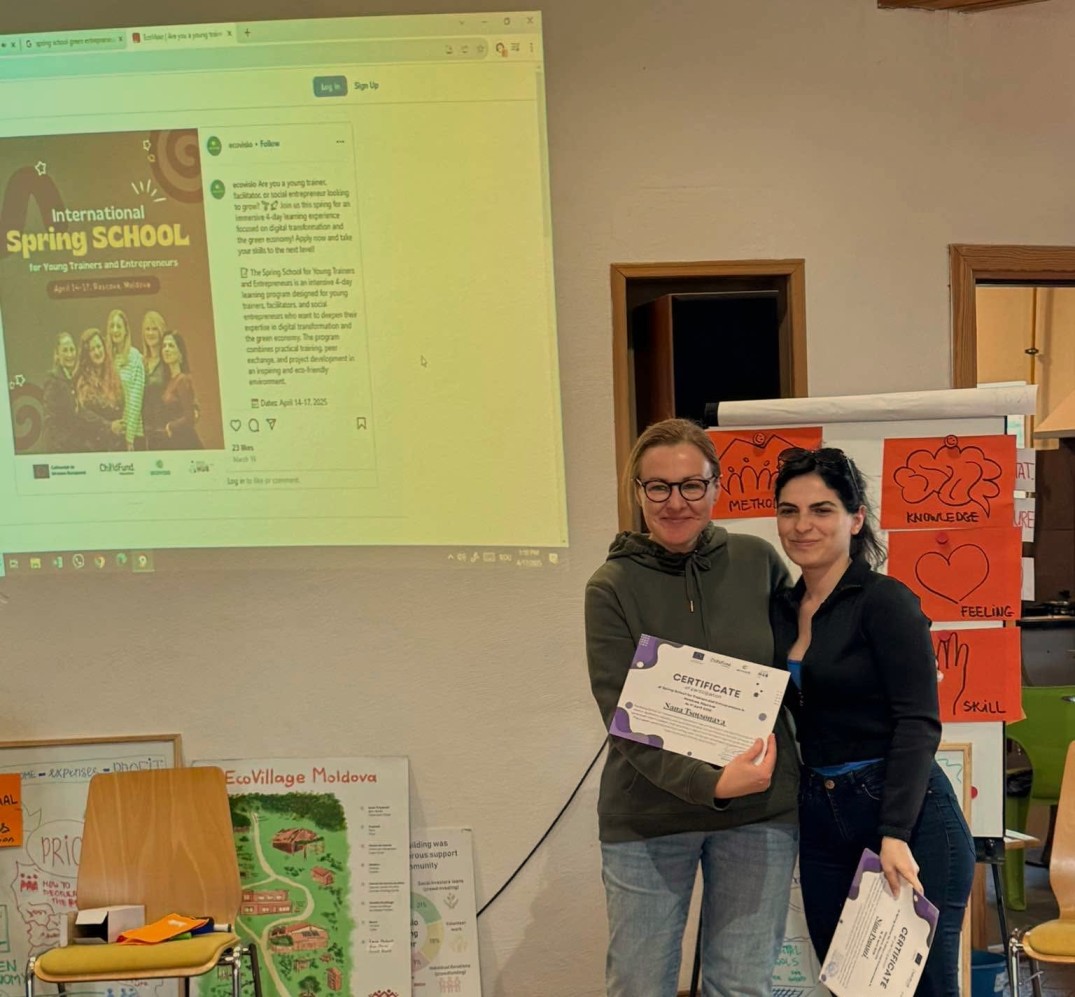
“Inspiring, empowering, transformative,” she says, when asked to describe the experience in just three words.
From mindset shifts to market choices
One of the most immediate takeaways for Nana was the importance of awareness. Not just in campaigns or outreach, but in everyday decisions – like where and how we spend our money. This is a personal and intentional shift that she believes can ripple outward and influence communities.
“My biggest ‘aha’ moment was realising how meaningful change often begins at the local level, with just one person or one idea.One immediate change I’m making is to support eco-friendly companies when I shop, whether it’s clothing or food.”
Rethinking green entrepreneurship
Nana admits her understanding of social and green entrepreneurship was tied to scale – big projects, big budgets, big impact. But that definition evolved. She understood that each region has its own environmental challenges, resources, and cultural dynamics, so successful green initiatives need to be tailored to fit those specific conditions.
“Now, I understand that even small projects, like a change in mindset or choosing ethical options, can be part of it. It’s more about your actions, goals and values than the size of the initiative.”
A message to young people: start small, think big
EU4Youth and other similar programmes play a vital role in empowering young people across Eastern Partnership countries. They create meaningful opportunities for personal and professional growth, and help them recognise their potential to become changemakers.
“In our region, young people often facechallenges such as limited careeropportunities and emigration,” said Nana.“EU4Youth initiatives are important because they help young people turn their ideas into reality, while also encouraging sustainable development. These initiatives help us realise that we are part of a larger community working toward shared goals likeinclusive societies.”
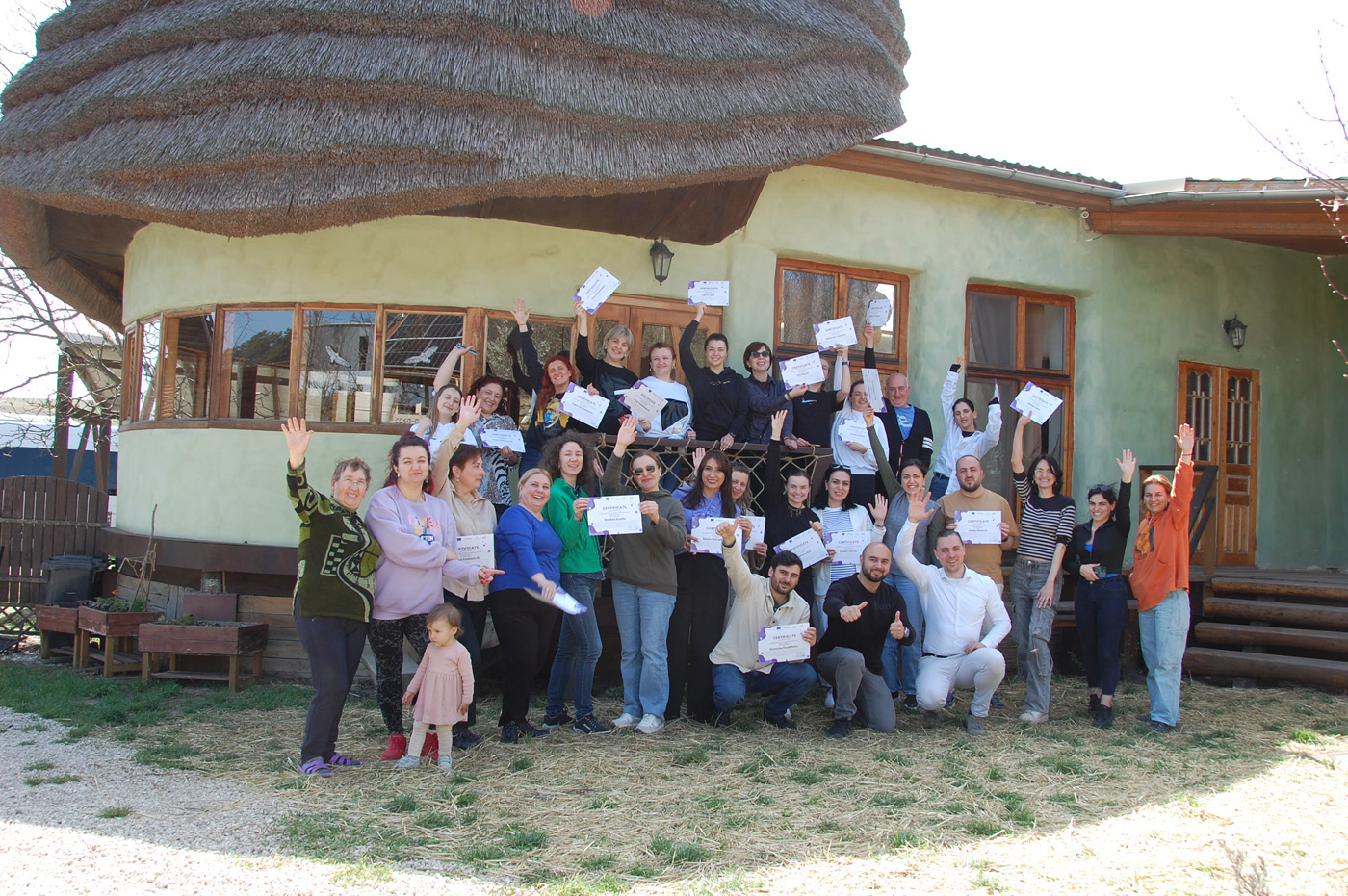
Nana believes every young person has a role to play in shaping more sustainable communities and they don’t have to wait for the ‘perfect’ opportunity to begin.
“Green entrepreneurship begins with small, meaningful steps. What you do can inspire others and help create real change.”
The Spring School was organised by EcoVisio and funded by the ‘EU4Youth Programme Phase III: Youth Employment and Entrepreneurship’, within the Child Fund project ‘Promoting youth social entrepreneurship and practical career management skills in Ukraine, Moldova, Georgia and Armenia through the innovative approach of Student Social Companies (SSCs)’.
The EU4Youth ‘Youth Employment and Entrepreneurship programme’ is funded by the European Union and the Lithuanian Foreign Ministry, and implemented by the Central Project Management Agency (CPVA) in the Eastern Partnership countries, Armenia, Azerbaijan, Belarus, Georgia, Moldova, and Ukraine. The programme will run until mid-2025 and aims to provide technical assistance to governmental and non-governmental organisations to tackle youth unemployment and improve employability.


